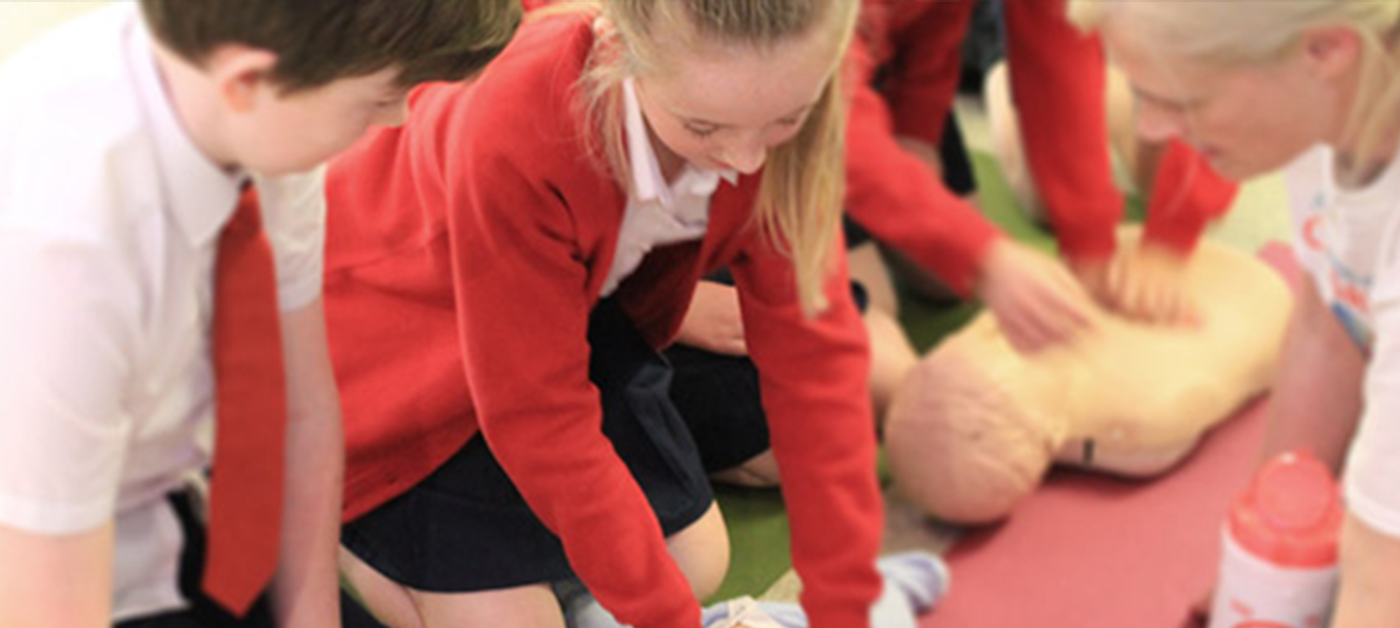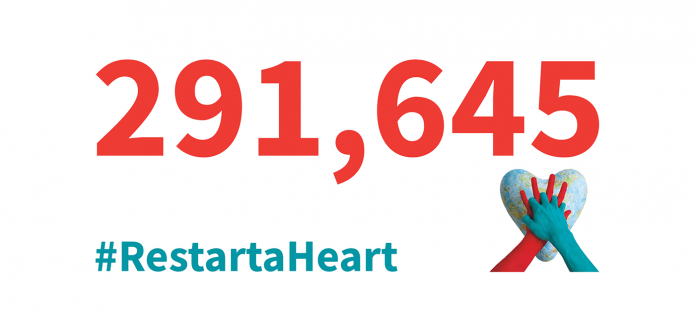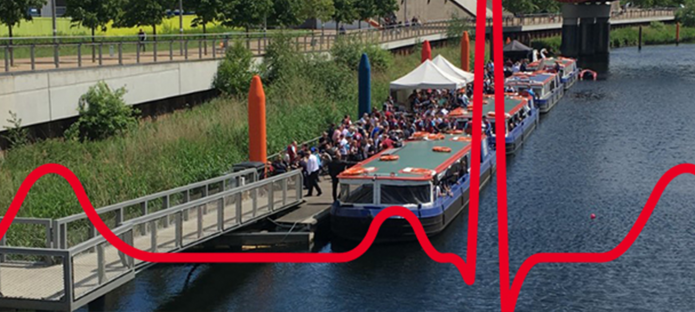16 October 2019 - Only 31% of people in the UK who haven’t had professional training on a CPR course are likely to help someone who has collapsed and stopped breathing. Research by Resuscitation Council UK and St John Ambulance to mark the sixth annual Restart a Heart Day shows that the general public are afraid to give cardiopulmonary resuscitation (CPR) without training, putting lives in danger.
Stranger danger and busyness bias were also cited as possible reasons for not helping someone who might have collapsed or stopped breathing in front of them. Just 64% would give CPR to a stranger – compared to 83% who would help a family member and only 60% of respondents are likely to give CPR in a crowded location, compared to 79%, if they were the only ones around.
The survey of 2326 people by YouGov, which asked respondents to consider what would make them more or less likely to intervene in a cardiac arrest, clearly shows the positive effect of CPR training. An impressive 71% of people who have had some first aid professional training would be prepared to stop and help someone if they had a cardiac arrest in any situation.

Andy Lockey, Vice President of Resuscitation Council UK and Restart a Heart Day Lead said:
“Every minute without CPR and defibrillation reduces someone’s chance of survival by up to 10%. Training is the biggest factor in the likelihood of intervention - validating the need for as many people as possible to learn the simple skills needed to save a life. Cardiac arrest can happen to anyone, at any time. In an emergency, CPR can’t wait."
On and around 16 October, charities and ambulance trusts are coming together for Restart a Heart day to host events and visit schools across the UK to provide young people and adults with the skills and confidence to give life-saving CPR to anyone who needs it.
The initiative, led by Resuscitation Council UK in partnership with St John Ambulance, The British Heart Foundation, British Red Cross, and Yorkshire Ambulance Service and with participation from every UK Ambulance service, aims to improve survival rates from out of hospital cardiac arrests.
Organisations across the world are highlighting this day by performing CPR in iconic locations – including Stonehenge in Wiltshire, down in England's last deep coal mine in Yorkshire, the Colosseum in Rome, and Mecca in Saudi Arabia. For more information on Restart a Heart day and how you can get involved, click here.
Stephen Powis, National Medical Director of NHS England said:
“While the NHS is stepping up with investment in better treatment and more convenient access to care and prevention support, this campaign to raise awareness of CPR – which dramatically increases people’s chance of surviving a cardiac arrest – will help everyone to help the NHS by giving people the practical skills and confidence they need to be a lifesaver.”
Notes to editor
Press Contact: Emily Pulham, Communications Manager, Resuscitation Council (UK)
07506374945 : emily.pulham@resus.org.uk
Cardiac arrest occurs when the heart stops pumping blood around the body, and causes a person to collapse and stop breathing. Survival rates from out of hospital cardiac arrest remain stubbornly low in the UK, with fewer than one in ten people surviving. If CPR were more widely taught, thousands of lives could be saved every year. (Resuscitation to Recovery)
All figures, unless otherwise stated, are from YouGov Plc. Total sample size was 2326 adults. Fieldwork was undertaken between 17th and 20th September 2019. The survey was carried out online. The figures have been weighted and are representative of all UK adults (aged 16+).

